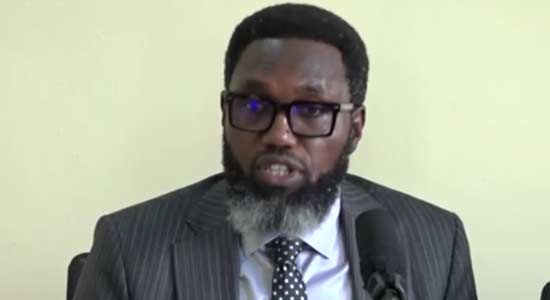A lawyer, Mr. Maxwell Opara, has taken legal action against the Federal Ministry of Education’s decision to stop students under 18 from sitting for the West African Examinations Council (WAEC) or Joint Admissions Matriculation Board (JAMB) exams. Opara filed the lawsuit at the Federal High Court in Abuja, arguing that the age restriction goes against the rights to education and protection from age discrimination. He filed the case on behalf of his 15-year-old son, Master Chinaemere, who is directly impacted by this policy.
Opara’s son is currently in SS2 and plans to take the WAEC and JAMB exams in 2025. However, the age restriction would prevent him from doing so until he turns 18. Opara believes this delay could negatively affect his son’s academic journey, forcing him to wait for years before being able to gain admission to a university. This, according to him, might result in a loss of academic momentum and slow his son’s educational progress.
The age restriction was announced by the Ministry of Education as part of its educational system, which follows the 6:3:3:4 structure. This system requires students to be at least 18 years old before they can enter a university. Opara is challenging this rule, stating that it is unconstitutional and that no law in Nigeria directly ties age to university admission. He insists that the restriction unfairly limits students’ opportunities.
Opara’s argument centers around the fact that education is a fundamental right, and setting an age limit for exams such as WAEC and JAMB deprives younger students of this right. He also points out that some younger students are capable of excelling in these exams and should not be held back by their age. For him, this policy not only violates the Nigerian Constitution but also harms students’ educational progress.
The lawsuit seeks to overturn the current age policy that prevents students under 18 from taking crucial exams like WAEC and JAMB. This policy has caused delays for many young students who are academically ready to continue their education but are forced to wait until they meet the age requirement. If the court rules in favor of the lawsuit, it could lead to major changes in the educational system, opening up new opportunities for younger students across the country to advance without unnecessary barriers.
Opara also argues that forcing students to wait until they turn 18 could cause them to lose motivation and possibly fall behind academically. He believes this policy is not in the best interest of the students and could harm their prospects.
As of now, the court has not yet scheduled a hearing for the case. The outcome of this lawsuit could have a far-reaching impact on Nigeria’s education system and how age restrictions are applied to school exams.





